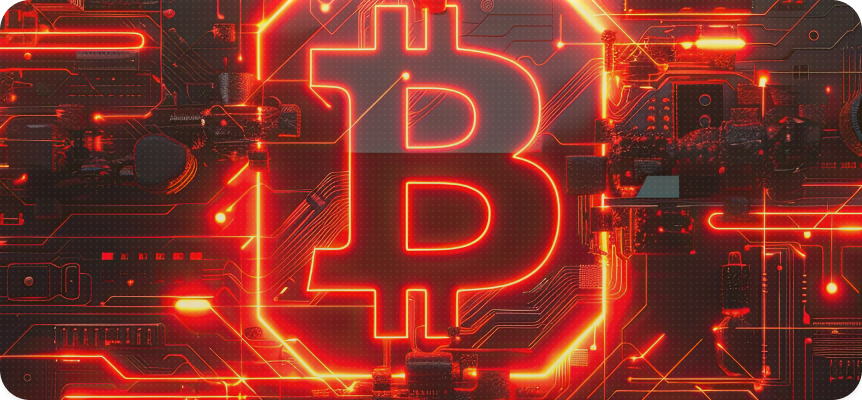This innovative technology allows you to confirm ownership of certain information without disclosing the information itself, which significantly increases the level of anonymity and security in digital transactions.

The essence and advantages of ZKP
Zero-Knowledge Proof (ZKP) is a revolutionary cryptographic technology that allows you to prove the authenticity of information without revealing the information itself. In other words, you can prove that you know or possess something without revealing what it is.
Imagine being able to prove your identity without revealing your passport details, or prove the availability of funds in your wallet without revealing your balance. This is the kind of ultra-privacy and security that ZKP provides — and that’s where its huge value lies for Web3, DeFi, digital passports, and even traditional businesses.
Key benefits of ZKP:
- Confidentiality: Provides a high level of anonymity, hiding transaction details from prying eyes.
- Security: Reduces the risk of personal data leaks, which is especially important in light of the increasing incidence of cyberattacks and hacks.
- Scalability: Helps increase the throughput of blockchain networks, allowing more transactions to be processed per unit of time
Key Game-Changing Benefits of ZKP
🔐 1. Absolute privacy
In an era where data is the new oil, privacy is paramount. ZKP preserves user privacy by eliminating the need to disclose private data when interacting with the blockchain, services, or other people. This is especially true for financial and identity transactions.
⚙️ 2. Security without intermediaries
ZKP eliminates the need for trusted third parties. Proofs are generated and verified mathematically — without the risk of forgery or tampering. This makes the process secure by default, even in the event of mistrust between the parties.
🌍 3. Scalability and efficiency
Zero-Knowledge Rollups — second-layer technologies based on ZKP — allow processing thousands of transactions outside the main blockchain, aggregating them into a single proof. This reduces the load on the network, increases throughput, and makes fees several times lower.
✅ 4. Leak-free compliance
Businesses and users no longer have to choose between security and compliance. With ZKP, you can fulfill KYC/AML requirements or verify age, citizenship, and other criteria without disclosing any unnecessary details. This is an ideal solution for regulated markets.
💼 5. Versatility and cross-industry applicability
ZKP is already used in:
decentralized exchanges (DEX)
Web3 games
DAO voting
digital passports and DID services
logistics and law
corporate networks and IoT
The technology is absolutely universal: from finance to government, from NFT to medical data.
Evolution and application of ZKP
ZKP technology was initially implemented in the Zcash cryptocurrency to provide anonymity for transactions. However, over time, it became clear that the potential of ZKP goes far beyond a single cryptocurrency.
The period from 2021 to 2023 saw a significant increase in interest in ZKP, which resulted in the launch of many projects and attracting large investments in this area.
Examples of successful ZKP-based projects:
- zkSync Era: Launched in March 2023, this project demonstrated high speed and low transaction fees, attracting millions of users.
- Starknet: A network that has been actively developing since 2023, with an increase in total value locked (TVL) and the number of active users.
- Polygon zkEVM: A proposal from the Polygon team aimed at increasing compatibility with Ethereum and improving scalability.
How 2024 Went for Zero-Knowledge Proof Technologies
2024 has been a truly productive and breakthrough year for Zero-Knowledge Proof. While the technology was just gaining momentum in the past, this year it has firmly taken its place in the core of Web3 development, providing privacy, scalability, and trust without compromise.
Key results of the year:
Mass adoption in DeFi and dApps
ZKP has become the de facto standard for leading decentralized applications. More than 60% of new projects in DeFi use zk-rollups and zkEVM solutions to ensure privacy and reduce fees.
Growth of ZKP-based second-layer networks
Projects such as zkSync Era, Scroll, Polygon zkEVM, and Starknet have significantly increased their share of users, transactions, and TVL. zkSync, for example, entered the top 3 in terms of the number of active wallets among L2 networks.
Real-world use in identification solutions
ZK protocols are actively used in decentralized identification systems. DID and ZK passports allow users to verify their identity without leaking personal data, which is especially important in the era of digital transparency.
Increased privacy at the protocol level
First-layer (L1) protocols, including Ethereum, have begun integrating ZK technologies into their base layers – this ensures not only privacy, but also resistance to censorship.
Participation of large players
Large companies, including those from the traditional IT sector, have begun investing in ZK projects. Google Cloud and Microsoft Azure have offered infrastructure solutions for zk application developers.
What does this mean:
Zero-Knowledge Proof is no longer just a “promising trend”, but a mature and applied technology. It is no longer the preserve of crypto enthusiasts – it is now the foundation for building secure and scalable digital services, from decentralized exchanges to digital passports.
2024 has confirmed that ZKP is not a passing fad, but a necessary element of the Web3 architecture and the digital future in general.
ZKP Development Prospects in 2025
2025 is expected to be a turning point for ZKP-based technologies. Leading decentralized applications (dApps) are expected to migrate en masse to ZKP networks, leading to the growth of the ecosystem and an increase in the number of users.
In addition, decentralized identity and data anonymity solutions are expected to develop, making ZKP an integral part of digital security.











